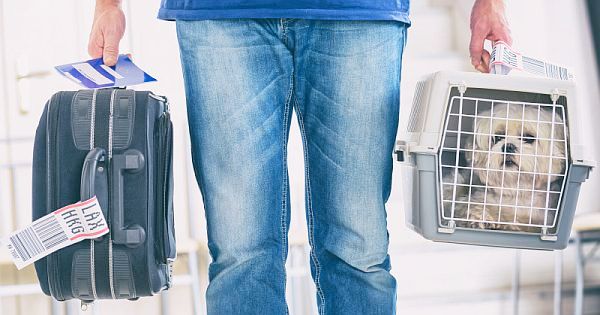Need to fly with Fido? You should know that many airlines are tightening the leash on emotional support animals in the main cabin. But on the flip side, some airlines offer perks for flying pets.
Every day, thousands of travelers take to the skies with their pets for a variety of reasons. In the United States, over 2 million animals fly on planes each year. Flying your dog, cat or other critter can be complicated, expensive and stressful. But many people need to travel with their pets because they are:
• Making a big U.S. or international move
• Going on an extended trip
• Relocating for military service
• Traveling with an emotional support or service animal
The Air Carrier Access Act requires airlines to make room for service animals that perform specific tasks for, or give emotional support to, people with disabilities. But some airlines are getting stricter about emotional support animals in the wake of incidents ranging from a little girl who was nipped by an emotional support dog to a woman who tried in vain to fly with her emotional support peacock. Delta states customers have even tried to fly with "comfort" snakes and even spiders.
 |
As of March 2018, Delta and United now require extra documents from passengers flying with emotional support animals. Almost all airlines ask for a letter or signed form from a certified mental health professional.
Delta and United, however, now also require: a signed veterinary health form, current vaccination records and confirmation that the animal has been trained to behave in public. Passengers who provide all of the proper paperwork can fly with their animal in the cabin without paying a penny for their pet's passage.
For other travelers, a few airlines help offset the sometimes substantial cost by offering rewards for traveling with an animal companion. In fact, JetBlue, Virgin Atlantic and United Airlines all offer pet rewards programs:
JetBlue JetPaws
With JetBlue's JetPaws program, members of the airline's frequent-flyer club earn 300 points each time they board with their pet. There are conditions, of course. There's a $100 fee, and pets must fly in a closed carrier that fits beneath the seat with their owner. The combined weight of the pet and carrier must not exceed 20 pounds. There's a limit of one pet per passenger per flight, and pets count as a personal carry-on.
Virgin Atlantic Flying Paws
With Virgin Atlantic's Flying Paws program, pet owners receive 1,000 club miles per pet for shorter flights and 2,000 for longer ones. The fee depends on the size of the carrier, and the destination. Because Virgin prohibits pets in the cabin, all dogs and cats must travel in cargo. That's not all bad news: The cargo hold is climate-controlled, just like first class, and dogs and cats of all sizes are welcome to fly solo.
United Airlines PetSafe Program
The United Airlines PetSafe Program offers 500 United MileagePlus award miles for each pet shipped within the United States, and 1,000 award miles for each pet sent to an international destination. This applies only to pets shipped as cargo through the PetSafe program, not pets that fly in the cabin with their owners. Rates depend on the weight of the pet plus carrier and the distance of the trip. For example, it would cost about $350 to ship a 60-pound dog to Portland, Oregon, from anywhere in the U.S., and just under $850 to send the same pooch to Paris from U.S. destinations.



